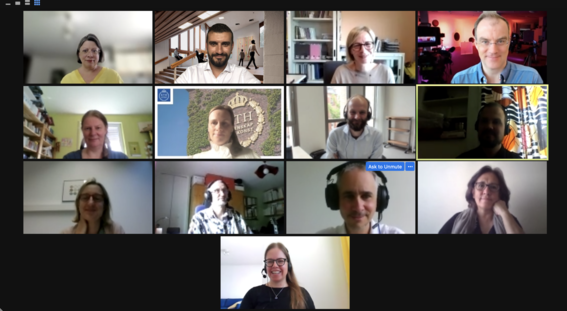Unite! staff gathered to define an open science and innovation roadmap

New digital technologies and tools, together with new open physical and digital infrastructures, have disrupted the openness of the institution of open science in universities. They are remodelling universities’ science and innovation practices, cognitive norms, and processes as well as challenging their existing cultures, missions, and policies.
The Unite!H2020 consortium is funded by the European Union Horizon 2020 programme, and it is composed by Politecnico di Torino (coordinator, Italy), TU Darmstadt (Germany), Aalto University (Finland), Grenoble Institute of Technology (France), KTH Royal Institute of Technology (Sweden), Universidade de Lisboa (Portugal) and Universitat Politécnica de Catalunya Barcelona Tech (Spain).
In the June co-creation event, all partners looked at which transformations are ongoing at their universities with the aim to align and reinforce partner’s initiatives towards a common open science and innovation institutional vision. Through mutual learning and identification of good practices among universities, the consortium will develop a Unite! Open science and innovation strategic roadmap towards a high impact alliance, the Unite! vision for open science and innovation.
‘We are creating the university of the future – a new kind of collaborative governance model for research and innovation in the digital era. Over the next three years we will provide tools and practical policy recommendations to help create a European university with open science and innovation and its core, to help develop a sustainable world’, says doctoral candidate Rubén Vicente-Sáez, leader for the H2020 working package on open science and innovation.
Further reading:
UNITE! University Network for Innovation, Technology and Engineering
Read more news

Nature of Process: Exhibition by the students of the ‘Personal Exploration’ Course
Nature of Process is a multi-material exhibition of 14 Master´s students of Aalto ARTS
Doc+ connects research impact with career direction
Doc+ panels have brought together wide audiences in February to discuss doctoral careers and their diversity.
Join a Unite! matchmaking event on forging new consortia for Horizon Europe applications
Calling researchers and industry partners to connect at a virtual matchmaking session designed to spark project collaborations for Horizon Europe funding. Registration deadline, 12 March.






